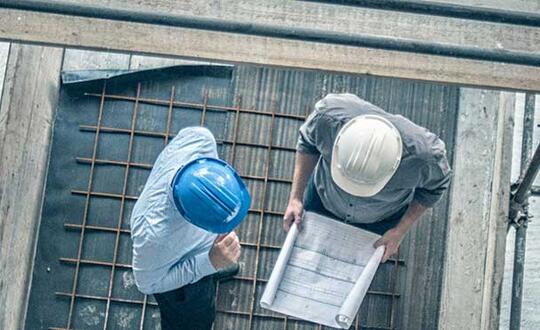
Willmott Dixon Construction Ltd v Robert West Consulting Ltd [2016] EWHC 3291 (TCC)
Background
Willmott Dixon Construction Limited (Willmott Dixon) was appointed by a property owner as main contractor for works at two properties in Clapham, London. Willmott Dixon subsequently appointed Robert West Consulting Ltd (Robert West) to design the underpinning of a gable wall shared with another property on the same road. Willmott Dixon subcontracted the underpinning itself to Toureen Contractors Ltd (Toureen).
The party wall allegedly suffered damage as a result of the underpinning. In 2015, Willmott Dixon brought a claim against Robert West, alleging that Robert West's design had been defective, thereby delaying the project and causing Willmott Dixon loss.
One of Robert West's defences was that the damage to the party wall had partially been caused by Willmott Dixon's contributory negligence, on the basis that Willmott Dixon's sub-contractor (Toureen) had been negligent.
Contributory negligence and sub-contractors
A defence of contributory negligence is based on tortious principles (rather than the law of contract). A general rule of contributory negligence is that a main contractor is not liable for the negligence of its independent subcontractor.
There are some exceptions to this rule, including:
- The main contractor had actual knowledge that the sub-contractor's work had been done in a foreseeably dangerous way and condoned it
- The main contractor owes a "non-delegable duty" i.e. even if the works were in fact carried out by Willmott Dixon's sub-contractor, Willmott Dixon owed a duty to procure the careful performance of the works by its sub-contractor.
Robert West initially based its defence of contributory negligence on the first of the above exceptions, which it confirmed in its response to a Request for Further Information from Willmott Dixon in December 2015. It also specifically stated that Robert West did not allege that Willmott Dixon was vicariously liable for the sub-contractor's alleged negligence.
However, over a year later, and 6 weeks before trial, Robert West applied for leave to amend this response as follows:
- Delete the statement that Robert West did not allege that Willmott Dixon was vicariously liable for Toureen's alleged negligence, thereby suggesting that Robert West claimed Willmott Dixon was vicariously liable for Toureen's alleged negligence
- Add a new allegation, that another exception to the general rule that a main contractor is not liable for the negligence of its independent subcontractor is where the sub-contractor is entrusted with work which involved the withdrawal of support from a neighbouring property.
Willmott Dixon rejected the application and Robert West applied to the Court. As a result of the lateness of the amendment, Robert West had to demonstrate that the amended allegation had a real prospect of success. The Court therefore considered the amended application in some detail.
The Court's decision
The Court refused Robert West's application, on the basis that Robert West's allegations had no real prospect of success and were "an ingenious but illegitimate attempt to render the main contractor vicariously liable for the acts or omissions of its independent sub-contractor".
(a) Vicarious liability
The Court quickly dismissed the idea that Willmott Dixon could be vicariously liable for Toureen's alleged negligence. In tort, vicarious liability means a person can be held liable for breach of duty by another person on public policy grounds. This is found in employment and other analogous circumstances. However, the Court held that it does not extend to independent sub-contractors.
(b) Non delegable duties
The question was actually whether Willmott Dixon owed a "non-delegable duty" to Robert West. Robert West relied on two arguments here:
- The work had been "extra hazardous or dangerous".
This principle was originally based on the case of Honeywill and Stein Ltd v Larkin Bros [1934] 1 KB 191. However, the Court of Appeal heavily criticised this principle in Biffa v Maschinenfabrik [2009] QB 725. In considering Robert West's argument, the Court again confirmed that this principle should be "viewed with grave caution" and concluded that a non-delegable duty cannot arise unless the works are exceptionally or unusually dangerous, no matter what precautions are taken (beyond what would be expected generally on a construction site).
- Removal of support by the owner of one property which causes damage to an adjoining property.
The Court rejected this on the basis that removal of rights of support is a separate concept from that being considered here; it is more likely to arise as a claim in nuisance than negligence. Further, the Court also ruled that Robert West's argument on that point had no application to the case, as this non-delegable duty only arose between owners of neighbouring land. Neither Willmott Dixon nor Robert West were the property owners.
In any event, the Court said that this was irrelevant: the allegation of contributory negligence is about Wilmott Dixon's failure to take reasonable care to look after itself. This would not involve any strict liability/non-delegable duty owed to others arising from Toureen's acts or omissions.
Therefore, the Court agreed with Willmott Dixon and concluded that the amendments sought by Robert West should not be allowed.
Lateness
As an aside, Coulson J stated that even if he had agreed with Robert West that Willmott Dixon had subcontracted a non-delegable duty and was therefore liable, the amendment to its initial responses was only notified a few weeks before trial without any explanation, making it too late and inadmissible.
Key lessons
This case is a good reminder of the principles of when a main contractor will, and will not, be liable for acts and omissions of its sub-contractors, and that a main contractor will rarely be liable in tort. However, it is of course possible to avoid such problems through the contract – for example, parties can simply include a clause that states the main contractor is liable for all acts and omissions of its sub-contractors.
This article is for general information only and reflects the position at the date of publication. It does not constitute legal advice.




